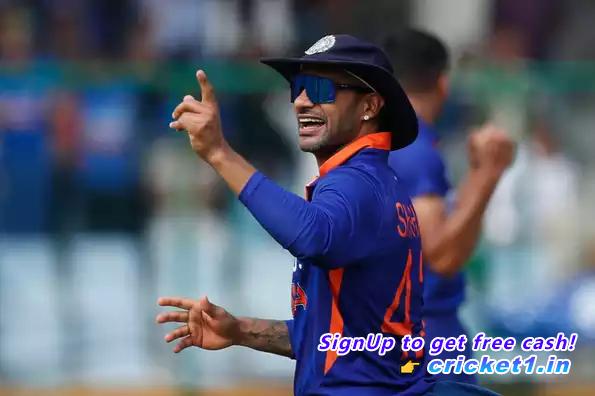
Shikhar Dhawan, the prolific left-handed batsman, has officially announced his retirement from both international and domestic cricket, effective immediately. This announcement brings to a close a remarkable career that spanned over 13 years, during which Dhawan played for India in 34 Tests, 167 One Day Internationals (ODIs), and 68 Twenty20 Internationals (T20Is), amassing impressive tallies of 2315, 6793, and 1579 runs respectively across these formats.
Taking to social media to share the news, Dhawan put forth an emotional message. “It’s important to turn the page to move forward in a story, and in life. That’s why, I am announcing my retirement from international and domestic cricket,” he declared in a heartfelt retirement video. “I’ve told myself to not feel sad that you won’t play for India again, but feel happy that you played for the country.”
Dhawan, aged 38, played his last match for India in December 2022 during an ODI against Bangladesh at Chattogram. His last T20I appearance was in July 2021 in Sri Lanka, and he had not featured in a Test match since 2018. Dhawan’s final participation in competitive cricket was for the Punjab Kings in the 2024 Indian Premier League (IPL) against the Sunrisers Hyderabad before an injury curtailed his season.
Dhawan expressed gratitude towards his family, fans, childhood coaches, and the various Indian and IPL teams he represented throughout his illustrious career. “Thank you all for your immense support and love through my journey. It has been nothing short of a dream,” he stated.
The opening batsman first rose to prominence in the 2004 U-19 World Cup, where he scored three centuries and amassed 505 runs. This remarkable feat positioned Dhawan as a promising talent. Following in the footsteps of other Delhi stalwarts like Virender Sehwag and Gautam Gambhir, he too became known for his prowess with the bat, particularly his elegant cover drives and cuts on the offside.
Although Dhawan’s ODI debut in 2010 against Australia was marked by a duck, he quickly turned his career around.
. His Test debut in March 2013 against Australia at Mohali was unforgettable; he scored the fastest century on debut, taking just 85 deliveries. That year, he played a crucial role in forming a formidable opening partnership with Rohit Sharma, spurheading India to victory in the Champions Trophy in England. Dhawan’s 363 runs and two centuries in that tournament firmly established him as an indispensable player.
One of his defining innings came during the 2015 Cricket World Cup, scoring 137 against South Africa at the Melbourne Cricket Ground (MCG). Dhawan fearlessly took on some of the world’s best bowlers, including Morne Morkel, Dale Steyn, Wayne Parnell, and Vernon Philander. This knock solidified his reputation as a man for big occasions. He began the 2019 World Cup with a bang as well, scoring a century against Australia, but a hairline fracture on his thumb subsequently curtailed his participation in that tournament.
In the IPL, Dhawan’s consistency shone through in his long career where he accumulated 6,769 runs over 222 matches. He was a crucial part of the Sunrisers Hyderabad’s championship-winning team in 2016, forming a dominant partnership with David Warner at the top of the order.
As his international appearances became infrequent by the turn of the decade, Dhawan still led India in 15 matches (12 ODIs and 3 T20Is) and captained 33 games across two IPL franchises – Punjab Kings and Sunrisers Hyderabad – including the erstwhile Champions League T20. His captaincy record for India stood at 8 wins, 5 losses, and 2 no-results, leading the team to series victories against Sri Lanka in 2021, and both West Indies and South Africa in 2022. However, his leadership in the IPL was more challenging: he recorded 13 wins to 20 losses.
Dhawan’s departure marks the end of an era for Indian cricket. His journey from a childhood prodigy to an international star and finally, a revered veteran, serves as an inspiration to many upcoming cricket talents. Dhawan might be retiring from active play, but his contributions will remain etched in the annals of cricket history.

